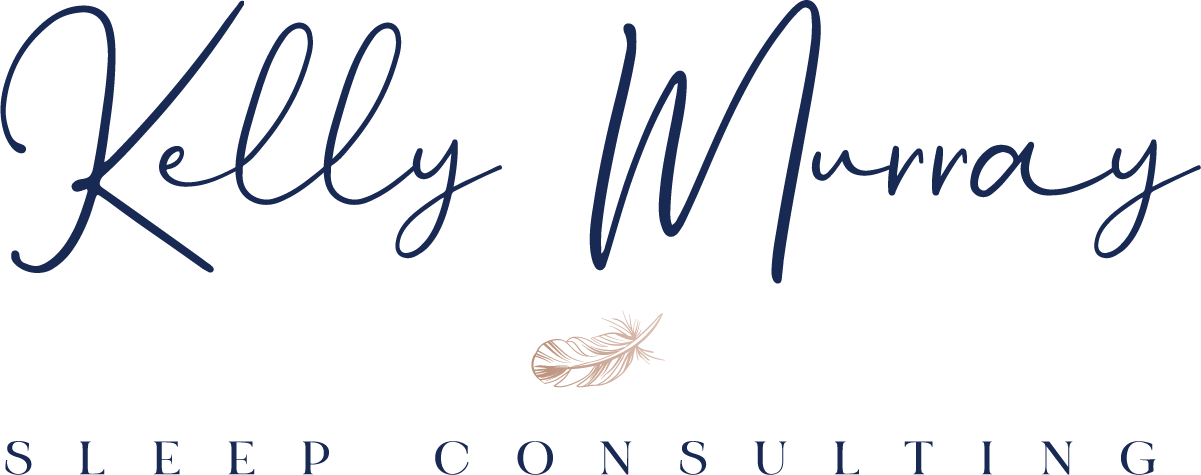Is Estrogen Dominance to Blame for Your Sleep Issues?
By: Kelly Murray, Certified Adult Sleep Coach, FDN-P
If you have been reading my blog for a while now, you know that one of my main goals is to uncover some of the lesser-known reasons behind sleep issues so that you can squash your sleepless nights for good. Today, I am going to share with you a sleep sabotager that I see in many of my female clients in their 40s, and that is Estrogen Dominance.
Yep, that hormonal balance dance can sometimes throw off our sleep game. But fear not! Understanding what's going on and having a few tricks up our sleeves can help us tame our estrogen so that we can get back to getting that deep, lush sleep that we all crave and deserve.
What is Estrogen Dominance?
Estrogen, a vital hormone in women, plays multifaceted roles, from regulating the menstrual cycle to supporting bone health. However, when estrogen levels surge or if there's a relative progesterone deficiency, which is common during perimenopause, it can lead to estrogen dominance.
This imbalance can stem from various sources, including stress, diet, environmental factors, or simply the fact that as we enter our 40s, our progesterone begins to dip, leaving our estrogen the alpha hormone.
Estrogen Dominance's Impact on Sleep
Impaired Neurotransmitter and Melatonin production
When estrogen takes center stage, it isn't just about maintaining the delicate hormonal balance. It also wields influence over our neurotransmitters, those chemical messengers that either inhibit or ramp up brain activity.
When estrogen rises, calming neurotransmitters like GABA and serotonin fall, which can then result in pretty serious anxiety or what I like to call “midnight monkey brain.” What’s worse is that serotonin is the precursor for melatonin, the hormone that regulates our sleep cycle. That said, more estrogen leads to less serotonin, which leads to less melatonin and less sleep.
Night SweAts
Like low estrogen, high estrogen impacts your body’s ability to regulate your temperature. Cue the night sweats! Not only are night sweats uncomfortable, but when our body temperature rises, melatonin falls. The reason is that our body takes cues from our environment to tell time. When the temperature rises our body thinks that is daytime and puts the breaks on melatonin production and produces cortisol, the alert hormone, instead. That is the last thing we want to happen overnight!
As you can see, estrogen dominance and sleep do make good bedfellows. But don’t worry, you don’t have to let estrogen dominate your sleep; there is plenty you can do to help your hormones become more harmonious.
Tips for Balancing Estrogen Levels and Enhancing Sleep
Here are some actionable tips to help metabolize estrogen effectively:
1. Incorporate Cruciferous Vegetables
These veggies—such as broccoli, cauliflower, kale, and Brussels sprouts—contain the photochemical called DIM, which aids in estrogen metabolism. So, stock up on those leafy green veggies!
2. Foster Good Gut Health
A healthy gut microbiome also aids in estrogen metabolism. Consume fiber-rich foods, probiotics, and fermented foods like yogurt, sauerkraut, or kimchi to promote a thriving gut environment. The gut is truly the foundation of good health and good sleep!
3. Utilize Castor Oil Packs
Applying castor oil packs over the abdomen can support liver function, aiding in estrogen breakdown. This practice has been valued for centuries as a natural remedy to promote detoxification and hormonal balance. Here is a link to my favorite castor oil pack, the Queen of the Thrones.
4. Manage Stress Effectively
Like everything that has to do with our health, chronic stress can disrupt hormone balance. That’s because when we are in the flight or fight state, our body puts any function that doesn’t have to do with survival such as hormonal balancing on the backburner. Although stress can not be avoided, it can be mitigated by engaging in stress-relieving practices such as journaling, deep breathing exercises or just simply lying down and taking a break (we could all use a break these days!)
5. Seek Professional Guidance and Functional Testing
Consulting with a functional healthcare professional, like me, who specializes in hormonal, liver and gut health can offer personalized insights through functional lab testing. These tests can uncover underlying stressors, deficiencies and imbalances and guide targeted interventions for better sleep and hormone balance.
If Your Hormones Are Impacting Your Sleep, Let’s Talk
If you are in your 40s and find yourself suddenly struggling with sleep, I hope you can find comfort in knowing that you are not crazy; your estrogen is to blame! Start implementing these tips to kickstart your journey to more harmonious hormones (I dare you to say that 10 times fast) and restful sleep.
If you are interested in learning more about working one-on-one to tame your estrogen and take back control of your sleep, let’s talk — please schedule a free 30-minute discovery call with me here to learn more→
Sweet Dreams
Kelly Murray is a certified adult sleep coach and an award-winning pediatric sleep consultant based in Chicago offering sleep coaching services nationwide.





